Doug Dillon's Blog, page 5
August 2, 2017
First President to be Impeached: Andrew Johnson
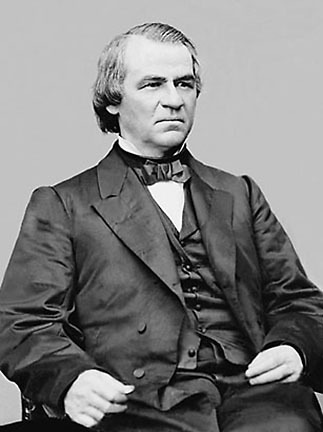
Impeachment, Congress���s remedy to oust a sitting president, has only been initiated three times in American History: 1868, 1974 and 1998.
None of those men, however, Andrew Johnson, Richard Nixon or Bill Clinton, were actually removed from office under the impeachment provisions in the U.S Constitution. One, Nixon, resigned from office ahead of an almost certain conviction.
Note: each of these former leaders of the United States faced a congress controlled by the political party of the opposition.
This article is the first of three that will give capsule stories about each of those impeachment attempts mentioned above. It is the initial effort to provide an historical background as dissatisfaction with the Donald Trump administration deepens and calls for the president���s removal increases. ��So, in that light, let���s take a look at America���s first impeachment attempt.
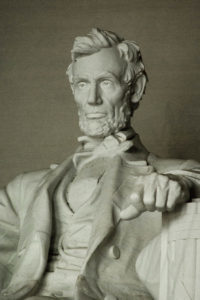 When the South seceded from the Union in 1861, Andrew Johnson, a Democratic Senator from Tennessee, refused to follow the secessionist movement and into civil war. And for his loyalty, President Lincoln, a Republican, appointed him as military governor of Tennessee in 1862. In 1864, Lincoln ran for a second term as president with Johnson as his running mate, mostly to show the South good faith.
When the South seceded from the Union in 1861, Andrew Johnson, a Democratic Senator from Tennessee, refused to follow the secessionist movement and into civil war. And for his loyalty, President Lincoln, a Republican, appointed him as military governor of Tennessee in 1862. In 1864, Lincoln ran for a second term as president with Johnson as his running mate, mostly to show the South good faith.
By the time Lincoln and Johnson took office in March of 1865, the American Civil War was drawing to a rapid close. But when Lincoln was assassinated in April, Johnson found himself installed as the new president.
Pugnacious and always believing he was right, Johnson was also much more sympathetic to the defeated South than were the northern Republicans who were in control of Congress. Much to their consternation, Johnson���s softer policies on reconstructing the shattered South allowed the old slave-holding class to keep their authority and condemned former slaves in the region to yet another form of violent servitude.
Those policies ignited a long-term firestorm of protest and opposition from congressional Republicans and those who served on the president���s cabinet, men originally appointed by Lincoln.
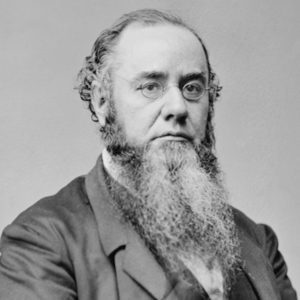
Secretary of War, Edwin M. Stanton
And in 1867, fearing the removal of Lincoln���s appointees to the cabinet by Johnson, especially Edwin M. Stanton, Secretary of War, Congress, over the president���s veto, enacted the Tenure of Office Act. This new law prohibited the president from firing any of his cabinet members without the approval of Congress.
Infuriated by this radical move to curtail his authority, Johnson decided to test the new law by twice attempting to fire Secretary Stanton and inserting new people in that office, including Ulysses S. Grant. But Congress would have none of that and in 1868 it initiated impeachment proceedings in the House of Representatives.
The House then drafted and approved 11 Articles of Impeachment by a simple majority vote, most of which had to do with the Tenure of Office Act. In the Senate, however, those 11 articles were culled to 3, those that seemed most likely to meet the high bar of gaining a 2/3 majority approval.
The trial of an impeached president in the Senate was a public sensation since it was the first time such a thing had occurred in the short life of the United States. As provided in the Constitution, the Supreme Court Justice. Salmon P. Chase, presided with events starting on March 4, 1868 and ending on May 26, of that same year.
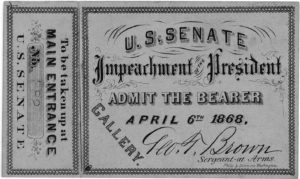 Drama reigned, witnesses were called, evidence was presented, and passions flared, but in the end, Andrew Johnson won the day. Although a large senate majority voted against the president, that was 1 vote short of the 2/3 majority needed. Each Article of Impeachment was voted down separately by the same margin, 35 to 19. At the time, there were 27 states with 2 senators each for a total of 54.
Drama reigned, witnesses were called, evidence was presented, and passions flared, but in the end, Andrew Johnson won the day. Although a large senate majority voted against the president, that was 1 vote short of the 2/3 majority needed. Each Article of Impeachment was voted down separately by the same margin, 35 to 19. At the time, there were 27 states with 2 senators each for a total of 54.
Even some of Johnson���s foes voted against conviction in brave philosophical disagreement with their fellows. In what would today be labeled a statement of bi-partisan support, one of those foes, Senator James Grimes of Iowa, said ���I cannot agree to destroy the harmonious working of the Constitution for the sake of getting rid of an Unacceptable President.���
It had taken 3 years for this conflict of wills and constitutional authority to be resolved, and even though he won, Andrew Johnson served out the rest of his term in office a more subdued and cooperative man.
And as for the Tenure of Office Act, it died a slow but complete death, first by partial repeal, then by full repeal and eventually, in 1926, the Supreme Court of the United States declared it unconstitutional. This gradual eventuality exposed the true political nature of the law regardless of any good intentions the congressional lawmakers back in 1867 may have had.
Sources for Further Information
Videos and articles
Andrew Johnson Biography (Biography.com 2:08)
The Impeachment of Andrew Johnson: Conflict Between President and Congress��(History 103 10:14)
Articles & Books
A Short History of Impeachment: Johnson, Nixon and Clinton (Infoplease.com)
The Case for Impeachment (HarperCollins Publishers)
Removal of a President Under the Constitution (Indivisible of Central Florida)
The Impeachment of Andrew Johnson [1868] (The U.S. Senate)
The post First President to be Impeached: Andrew Johnson appeared first on Welcome to the Worlds of Doug Dillon.
July 22, 2017
The French Election, the Far Right and Trump
What the French Election Might Teach Us

French President Emmanuel Macron
Much to the relief of many people and world governments across the globe, centrist Emmanuel Macron soundly defeated the far-right candidate, Marine Le Pen, for the office of French President on May 7, 2017. In doing so, Macron became the youngest leader in the history of the republic at age 39 while also stopping Le Pen���s isolationist agenda in its tracks. For now.
 Endorsed by former President Obama, Macron and his 66% win showed that the French people rejected Le Pen���s anti-globalist, anti-Islamic immigration, anti-NATO, anti-EU, France first and pro-Russian outlook. And with President Trump supporting Le Pen, that election in many ways philosophically mirrored the 2016 presidential battle between Trump and Hillary Clinton.
Endorsed by former President Obama, Macron and his 66% win showed that the French people rejected Le Pen���s anti-globalist, anti-Islamic immigration, anti-NATO, anti-EU, France first and pro-Russian outlook. And with President Trump supporting Le Pen, that election in many ways philosophically mirrored the 2016 presidential battle between Trump and Hillary Clinton.
Such a comparison became even more striking when Russian hackers dumped great amounts of anti-Macron information on the Internet the night before the election, harkening back to the Clinton email situation. And as if that weren���t enough, Le Pen showed up in Moscow with Vladimir Putin, also shortly before the election.
For Europe, the Macron victory ensures the stability there economically, militarily and politically. With France set to continue as a strong and committed partner in the European Union and NATO, the region remains a bulwark against an expansionist and politically aggressive Russia.

Marine Le Pen
And, of course, all of that bodes well for the United States in its own defense through NATO as well as being assured the EU, its largest trading partner, is not going to be fractured even more by a French exit. But it is in the political realm that the Le Pen defeat might be most instructive for those in the U.S. who are still in shock over the election of the Le Pen type candidate, Donald Trump, and the ever-increasing chaos surrounding his presidency.
Lessons to Be Learned
The French election shows how a strong, isolationist, populist candidate can be halted. It is even possible that in seeing the results of the U.S. election and how that has played out since, the French people didn���t want the same for their country. This could be good news for the opposition to Trump & Company as they plan for the 2018 and 2020 elections.
The Macron win is a reversal of a world trend towards the installment and solidification of far-right governments which could shift voting patterns away from such candidates in the U.S. for future elections.
The Le Pen defeat could help build less willingness in other countries, like the U.S., from discriminatory Muslim travel and immigration policies.
The Le Pen defeat will keep France in the Paris Accords, thus maintaining stability in the world���s plan, signed by 195 countries including the U.S., to counteract climate change.
Macron���s victory even in the face of heavy Russian meddling is an indicator that perhaps once people truly understand what is going on, they will not let such interference negatively influence how they vote whether it be in France, the United States or elsewhere. It is also a sharp rebuke to Russia that just might be replicated in other countries facing similar intrusions.
Sources for further information
Videos + articles
Emmanuel Macron wins presidency as France rejects far-right (CNN 1:40)
Emmanuel Macron defeats Le Pen to become French president (BBC News.com 2:00)
Five reasons the French election is a big deal (USA Today.com 1:26)
Why Macron’s French election win matters to the U.S. (CBS News.com)
Articles
Emanuel Macron Biography (Biography.com)
Marine Le Pen Biography (Britannica.com)
What the French elections mean for Americans (CNN.com)
The post The French Election, the Far Right and Trump appeared first on Welcome to the Worlds of Doug Dillon.
Russia Meddling & Robert Mueller, Special Counsel
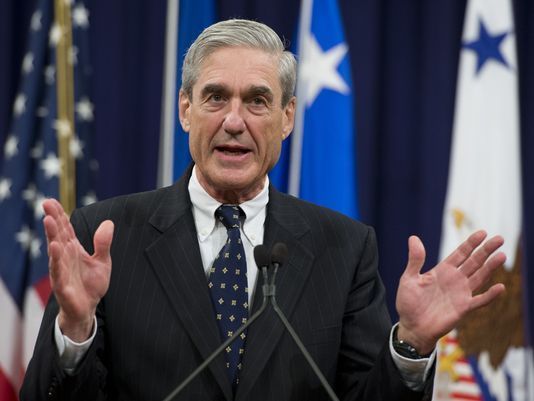
Robert Mueller, Special Counsel
Now it begins. After all the furor over the firing of FBI Director James Comey, and the possible links between the Trump election campaign and Russia, at least the start of a clear path to resolving those issues is in place.
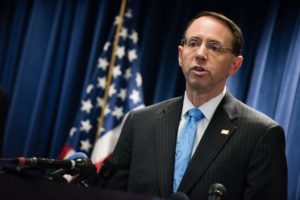
Deputy Attorney General Rod Rosenstein
At 6 PM on Wednesday May 17, Deputy U.S. Attorney General Rod Rosenstein appointed Robert Mueller, former FBI Director under presidents George W. Bush and Barack Obama, as the special counsel for the Justice Department.
In this seldom established investigatory position, it will be Mueller���s job to get to the bottom of Russia���s meddling in the 2016 U.S. election and any involvement of Donald Trump���s campaign staff as part of that extremely serious intrusion into American politics.
What���s the Task of This Special Counsel?
The assignment of a special counselor in this case is not just a powerful counterintelligence probe. It is also a federal criminal investigation with the authority to scrutinize the situation for any possible coverup by the Trump administration with the ability to bring formal, legal charges. And based on similar inquiries in the past, the duration of Mueller���s work could span years.
How the Decision Was Made
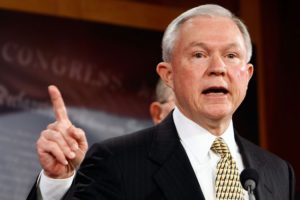
Attorney General Jeff Sessions
Normally, the decision to create the post of special counsel, and the selection of the individual to fill that post originates from the U.S Attorney General (AG). But in this case, since the current AG, Jeff Sessions, has recused himself from involvement in the Justice Department���s Russian meddling investigation, that responsibility fell to the Deputy AG, Rod Rosenstein.
Himself a part of the Comey termination, Rosenstein determined that it was especially important that a special counsel be appointed in order to calm the waters and be able to uncover all the facts in a nonpartisan manner acceptable to all.
More About Mueller ��
But that could only be accomplished, Rosenstein realized, if he selected just the right person.���������������������������������������� And that he did. Robert Mueller, 72, is a decorated Marine Corps veteran, a career prosecutor and the longest serving FBI Director outside of Herbert Hoover (12 years).
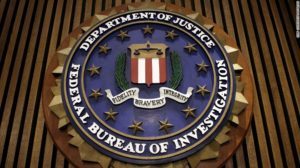 He transformed the FBI in those terrible times after the 9/11 attacks into a more agile and competent intelligence organization especially in dealing with terrorism. He is widely considered a man of strength and complete integrity who shuns the limelight and follows the evidence wherever it goes regardless of political considerations.
He transformed the FBI in those terrible times after the 9/11 attacks into a more agile and competent intelligence organization especially in dealing with terrorism. He is widely considered a man of strength and complete integrity who shuns the limelight and follows the evidence wherever it goes regardless of political considerations.
Mueller has already resigned his position in a leading Washington DC law firm and is bringing two of his highly-qualified associates to the Justice Department with him. There he will completely oversee all Russia investigations, create his own team and submit a budget to Deputy AG Rosenstein. Rosenstein will be Mueller���s supervisor but has already stated before Congress that he will give his new special counsel the absolute independence he needs to get the job done and nurture public trust in the process.
Working Relationships and Reports
And while Mueller and team���s presence at the Justice Department will only enhance that agency���s Russia investigations, they will also have to establish effective working relationships with similar, although not criminal, investigations in Congress.
In that way, there should be less overlap and conflict while enhancing the efforts of all groups. Mueller���s work, however, will be done in relative obscurity but with an eventual report going to Deputy AG Rosenstein at the end of the process. It will be Rosenstein who will determine if any of that report goes public. But if the special counsel���s efforts result in indictments, those would be made available for all to see.
Outlooks on the Decision
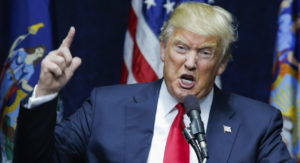 Democrats have welcomed the creation of the special counsel in general and specifically, Robert Mueller���s appointment. Many still hope, however, that an ���Independent Commission,��� and/or a ���Select Committee��� of Congress, can be created.
Democrats have welcomed the creation of the special counsel in general and specifically, Robert Mueller���s appointment. Many still hope, however, that an ���Independent Commission,��� and/or a ���Select Committee��� of Congress, can be created.
Those moves, they feel, would more thoroughly ensure the shielding of investigative efforts from undue political influence, make even more information available and help make certain that such incidents never happen again.
Republicans applauded Mueller���s appointment, but most were less enthusiastic about the establishment of a special counsel. Some like Senators John McCain and Lindsey Graham, however, did seem to recognize the seriousness of the situation and the need for the remedy prescribed. On the other hand, President Donald Trump repeated on more than one occasion that the whole thing was just a ���witch hunt.���
So take a deep breath. It���s going to be a long haul, but at least the train is moving in the right direction.
For Further Information
Videos plus articles
Special counsel appointed in Russia probe (CNN.com 2:52)
Special counsel, special prosecutor: What’s the difference? (CBS News.com 3:11)
Trump on Special Counsel (NY Times 1:36)
7 things to know about Robert Mueller, new special counsel for Russia investigation (USAToday.com 1:03)
Articles
Congress welcomes Robert Mueller as special counsel, some more enthusiastically than others (LA Times)
Robert Mueller appointed special counsel (CBS News.com)
Robert Mueller, Former F.B.I. Director, Is Named Special Counsel for Russia Investigation����(NY Times.com)
The post Russia Meddling & Robert Mueller, Special Counsel appeared first on Welcome to the Worlds of Doug Dillon.
James Comey, His Firing and the Rule of Law
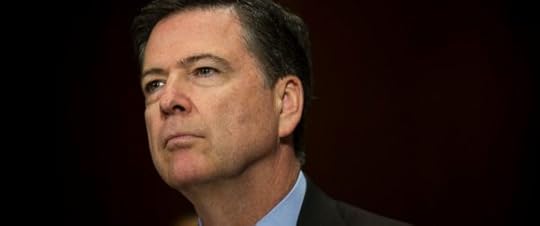
Former FBI Director, James Comey
When he dismissed FBI Director James Comey on Tuesday, May 9, 2016, President Donald Trump stunned Washington DC and ignited a firestorm of protest.
With new developments in this situation exploding from media outlets every day since the firing, it hasn���t been easy for even the most seasoned political junkie to keep track of it all, no less fully understand what is truly happening. But emerging from this chaotic news inundation is one possible result when all is said and done and it is this: The president may well have committed the crime of obstruction of justice.
What Actually Happened?
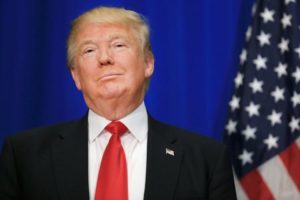 On display for the entire world to see, sadly, Donald Trump���s autocratic tendencies erupted full-bore when he terminated Comey, the man who was not only leading the FBI investigation into Russia���s meddling in the 2016 U.S. election but also the bureau���s scrutiny of the Trump presidential campaign���s possible connections to the Russian government.
On display for the entire world to see, sadly, Donald Trump���s autocratic tendencies erupted full-bore when he terminated Comey, the man who was not only leading the FBI investigation into Russia���s meddling in the 2016 U.S. election but also the bureau���s scrutiny of the Trump presidential campaign���s possible connections to the Russian government.
And, of course, as part of his own campaign, Trump was, and still is, a potential target of such scrutiny. In effect, the President of the United States decapitated the FBI���s leadership of the investigation that had, and still has, extensive power to uncover wrongdoing on his part and that of his campaign team.
The Russians
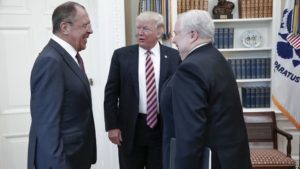
Trmp meets with Russians in the WH
In his usual tone-deaf manner just one day after signing his order to fire Comey, the president also received Sergey Lavrov, the Russian Foreign Minister, and Sergey Kislyak, the Russian Ambassador to the United States, at the White House, in the Oval Office. Kislyak. That���s the Russian official who was without doubt in communication with more than one of Donald Trump���s campaign people before the election.
Or was it just tone-deafness? And why was there such a meeting in the first place? The answer to the last question is this: because Vladimir Putin requested it. Really?
And why were there no U.S. media representatives allowed in that oval office gathering, especially when a photographer from a Russian news agency controlled by the Russian government was present? The only reason the public saw pictures of that tight little White house sit-down was because the Russians made them available.
 The Russians and not the free press of the United States of America. In those photos, a smiling Donald Trump is amiably chatting with his equally smiling guests, representatives of the government that incontrovertibly meddled in the 2016 U.S. election to the president���s favor. Putin must have been proud.
The Russians and not the free press of the United States of America. In those photos, a smiling Donald Trump is amiably chatting with his equally smiling guests, representatives of the government that incontrovertibly meddled in the 2016 U.S. election to the president���s favor. Putin must have been proud.
Why Fire Comey?
Evidently not trusting his own staff or top surrogates to keep the coming termination from leaking ahead of time, Trump only notified them of his decision shortly before the event occurred. Being caught flatfooted as they were caused his people to scramble in their attempts to support him and together with the president, they initially gave the following as the essential reasons for getting rid of the FBI Director, as well as a preemptive denial of wrongdoing by Trump himself:
Director Comey simply wasn���t doing the job.
Many FBI agents were not happy with Comey and wanted him out.
The firing was for Director Comey���s mishandling of the Hillary Clinton emails situation.
The firing came as a result of a written recommendation by Deputy Attorney General, Rod Rosenstein and approved by Attorney General, Jeff Sessions. That���s the same Sessions who had recused himself from involvement in the Russian meddling investigation. So much for an extremely valid withdrawal of a major player in the Trump campaign who had problematically met with Russian Ambassador Kislyak before the election.
The firing had nothing to do with the Russia investigation.
Why Fire Comey? A Closer Look
 But listening to well-placed sources soon after the FBI Director���s dismissal gave a fuller story. Among the reasons or background given were these:
But listening to well-placed sources soon after the FBI Director���s dismissal gave a fuller story. Among the reasons or background given were these:
The president had considered getting rid of Director Comey as far back as the time of the election but temporarily decided against such action.
The week before the termination, Trump���s agitation with Comey reached a boiling point.
One report said that Trump wasn���t happy that Comey had asked the Department of Justice for greatly increased resources to pursue his Russia investigations.
The president was still angry with Director Comey because he would not support Trump���s unfounded assertion that former President Obama ���wiretapped��� him.
The week before the termination, Trump���s agitation with Comey boiled over after the Director testified before Congress and wouldn���t give the president a heads-up regarding what he might say at the hearing. This Trump and team considered insubordination.
Trump believed that many Democrats would agree with his decision to fire Comey because of their dislike for how the FBI Director dealt with the Clinton email affair.
It indeed was about Russia and the FBI probe into the Trump campaign, partly or completely.
Trump was enraged that Director Comey had never offered public exoneration regarding his campaign team���s possible Russia connections.
The president simply couldn���t understand why the Russia probe wouldn���t just go away and he would repeatedly ask his staff that question.
One report even claimed that President Trump screamed at TV clips having to do with the Russia investigation. Screamed.
Reactions
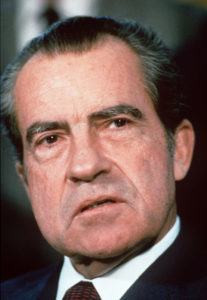 Of course the Democrats loudly decried the President���s action and likened it to those of Richard Nixon during the Watergate days. And naturally, Comey���s firing considerably sharpened their continued call for the appointment of a special independent prosecutor to investigate the Trump campaign���s Russia associations with an eye for possible collusion.
Of course the Democrats loudly decried the President���s action and likened it to those of Richard Nixon during the Watergate days. And naturally, Comey���s firing considerably sharpened their continued call for the appointment of a special independent prosecutor to investigate the Trump campaign���s Russia associations with an eye for possible collusion.
In contrast, most Republicans generally supported the termination. A few found it ���troubling��� and some took issue, as did the Democrats, with how the firing was handled: Director Comey learned of his change in status from TV news reports while out of town even though a courier had been dispatched with written documents to FBI headquarters
Word from FBI sources, including the freshly appointed acting Director of the FBI, Andrew McCabe, contradicted the president���s assertion that most agents were dissatisfied with Comey. According to his testimony to Congress, the former Director was well-liked at the bureau even though some disagreed with his handling of the Clinton email situation.
Shock, dismay, and anger quickly permeated the FBI, according to these reports, but along with those immediate reactions also came a resolve to keep doing the job at hand, including the Russia investigation, no matter what. Comey had only completed 4 years of a 10-year term of office, established to shield FBI directors from political interference. So much for intent of the law.
Trump Tries to Fix Things
 Later during that week of the termination, the president, no longer trusting his own staff or other surrogates to defend his Comey decision, badly bungled an attempt to get control of the situation by:
Later during that week of the termination, the president, no longer trusting his own staff or other surrogates to defend his Comey decision, badly bungled an attempt to get control of the situation by:
Saying he had planned to fire Comey before he received the termination recommendation from Deputy Attorney General Rod Rosenstein.
Claiming in a tweet how on 3 separate occasions, including at a White House dinner, Director Comey had assured him that he was not a target of the Russia investigation. (A statement strongly disputed by insiders who know Comey and had knowledge from the Director of what went on during the White House dinner. In fact, those same people also described how Trump asked for Comey���s loyalty, which was not given.)
Asserting during an NBC interview, in contradiction to what his aides and surrogates were saying, that at least part of his reasoning for firing Director Comey was indeed, the FBI investigation into the Trump campaign���s connections to Russia.
Tweeting a threat to former Director Comey, again stimulating comparison of Trump to Nixon during Watergate, or a mob boss, that he ���better hope that there are no ���tapes��� of our conversation before he starts leaking to the press.���
Surely it Couldn���t Get Any Worse
 Wrong. It did and there seems to be no end in sight. Just as this article was being readied for publication, even more developments popped onto an already overheated stage:
Wrong. It did and there seems to be no end in sight. Just as this article was being readied for publication, even more developments popped onto an already overheated stage:
The U.S. Department of justice is now in the process of interviewing a highly controversial list of candidates to replace James Comey as FBI Director. Around that selection, questions swirl as to whether or not the chosen individual will fully carry through with the FBI���s vital investigation of Russia���s meddling in the 2016 U.S. election.
Incredibly, in his meeting with the Russian Foreign Minister and Ambassador to the United States at the White House, the president rashly disclosed highly classified information on terrorism shared with the U.S. by one of our key allies, supposedly, Israel.
Before his termination, former FBI Director Comey wrote an office file memo describing how the president cornered him alone in the oval office and asked that he not pursue the investigation of Michael Flynn���s involvement with the Russians.
So What���s Next?
 At the writing of this article, the president is about to make a whirlwind international tour. Unfortunately, the allied leaders scheduled to meet with the president on his upcoming trip will surely have few illusions about his stability, decision making and reliability. This will especially be so for Israel, our key Middle East ally, the probable source of the top-secret information shared with the United States and leaked to the Russians by Donald Trump.
At the writing of this article, the president is about to make a whirlwind international tour. Unfortunately, the allied leaders scheduled to meet with the president on his upcoming trip will surely have few illusions about his stability, decision making and reliability. This will especially be so for Israel, our key Middle East ally, the probable source of the top-secret information shared with the United States and leaked to the Russians by Donald Trump.
Looking at the president up close may well remind our allies of ���The Emperor���s New Clothes,��� that wonderful old story about a powerful leader who blinds himself to the truth. And as they stare, one wonders, just how much faith and credit they will be able to invest in the Trump administration, faith and credit that can greatly impact the security and prosperity of the United States of America. Cross your fingers and stay tuned. If we are lucky, that trip will be cancelled.
Sources for further information
Videos + Articles Was Going to Fire
A Times Exclusive: Trump, Comey and the Russia Investigation (NYTimes 1:34)
I Was Going to Fire Comey Anyway, Trump Tells Lester Holt in Interview (NBCNews 2:34)
President Trump fires FBI Director James Comey (USAToday.com 55 sec.)
Trump latest: Live updates on FBI Director Comey’s firing (CNN.com 2:34)
Times Reporters Decode the Trump-Comey Saga (NYTimes.com 3:56)
Trump Fires Comey: Key Moments in a Public Scuffle (NYTimes.com 2:34)
Articles
Behind Comey���s firing: An enraged Trump, fuming about Russia (Politico.com)
Comey infuriated Trump with refusal to preview Senate testimony: aides (Reuters.com)
Sense of Crisis Deepens as Trump Defends F.B.I. Firing (NYTimes.com)
Trump Taunts Comey Over ���Tapes��� of Their Conversations (NBCNews.com)
The post James Comey, His Firing and the Rule of Law appeared first on Welcome to the Worlds of Doug Dillon.
July 21, 2017
General Michael Flynn & National Security
Who is Michael Flynn?

Michael Flynn, a once highly respected Lieutenant General in the U.S. Army, is in big trouble. Fired by President Donald Trump as National Security Advisor after less than a month on the job, Flynn is under a huge federal magnifying glass mainly for his connections to the Russian government. And essentially, he stands at the very heart of multiple high-stakes investigations involving links to Russia by the Trump administration.
What���s going on?
Subpoenas are flying Flynn���s way as the Justice Department and Congress look deeply into his involvement with the Russian government and its meddling in the 2016 U.S. presidential election. He has floated the idea of immunity past investigators and even threatened to stand behind his 5th amendment rights by not cooperating.
So far though, with the pressure increasing daily, immunity doesn���t seem likely and it appears as if the general might eventually appear before congress.
 A question that some ask, but will most likely never be fully answered, however, is this: How could a man who rose to such high rank and with such high-profile assignments to his credit fall so far and so quickly? Obviously, Flynn���s intelligence, together with extraordinary skill and dedication to his country had to have made him a valued asset to the military.
A question that some ask, but will most likely never be fully answered, however, is this: How could a man who rose to such high rank and with such high-profile assignments to his credit fall so far and so quickly? Obviously, Flynn���s intelligence, together with extraordinary skill and dedication to his country had to have made him a valued asset to the military.
So how in the world did he end up at the epicenter of so much DC intrigue? A look at the general���s background might shed a little light on these questions and no matter what, will surely be of interest.
Flynn: the quick version
He is 58-years-old, married with two adult sons. Born in Middleton, RI, he was 1 of 9 children. His father was a World War II veteran and his mother was heavily involved in Democratic party politics. A life-long Democrat himself before meeting Donald Trump, Flynn served in the U.S. Army for 33 years before retiring in 2014.
Key assignments in his U.S. Army career
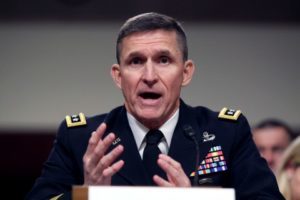
Joined the military in 1981.
Was a platoon leader in the 1983 U.S. invasion of Granada.
Served as Director of Intelligence for Joint Special Operations Command (JSOC)
in Iraq and Afghanistan.
Served as Director of Intelligence for the U.S. Central Command.
Served as Director of Intelligence for the International Security Assistance Force in Afghanistan.
Served as the Director of the Defense Intelligence Agency under President Obama.
As Director of the Defense Intelligence Agency (DIA )
It was this last assignment from 2012 to 2014 that ended Michael Flynn���s military career. When President Obama fired him from that post, he retired. People familiar with the situation said that the general was terminated because he didn���t listen to his staff and abused them, undermined administration policies and generally managed the agency badly.
It has been suggested that this bad performance was the result of Flynn���s being restive in that position since he preferred being where the action was taking place. But his judgment was being questioned under multiple circumstances, including his decision to accept a speaking engagement in Russia before officers of the GRU, that country���s military intelligence service.
After the DIA termination
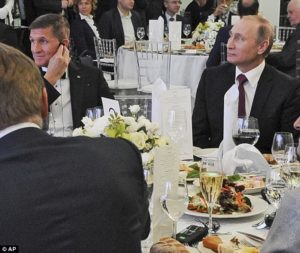
Flynn dining with Putin
From all accounts, Flynn was bitter about being fired by President Obama and proceeded to be very critical of him and his administration. That harshness apparently mixed with an increasing interest in right-wing conspiracy theories that boiled over into the public domain as well as into his decision-making.
The general established an intelligence security firm called, Flynn Intel Group. There he began a freelance consulting and public speaking career, much of which was very controversial. It looks as if he might well have literally become an agent of the Turkish government and he once gave a speech to RT, Russia���s government controlled news agency. At that talk, he sat and dined with nonother than Vladimir Putin himself.
The Flynn-Trump Connection
As part of his freelance consulting efforts, the general advised multiple Republican candidates vying for their party���s presidential nomination, including Donald Trump. The two men took a liking to each other and when Trump became the nominee, he asked Flynn to appear at the 2016 Republican convention. It was there that Flynn made his ���Lock her up��� speech when referring to Hillary Clinton.
 He also had conversations with the Russian ambassador, mirroring the actions of others in the Trump campaign.
He also had conversations with the Russian ambassador, mirroring the actions of others in the Trump campaign.
Trump had considered Flynn for vice president but eventually passed him over for that position, offering him instead, the job of National Security Advisor. This he did despite warnings from President Obama and the Justice Department about the general���s highly questionable connections to Russia.
And as of the completion of this article. General could possibly be found in contempt of Congress if he ends up refusing to fully cooperate with those ongoing Russia investigations. From a life of commendable service to his country, the former, and short-term, National Security Advisor continues his downward trek and the end is nowhere in sight.
Sources for further information
Videos + articles
Flynn ��� everything u needed to know�� (ABC News.com 1:06)
Flynn, the White House and Russia ��(CNN.com�� 1:20)
Michael Flynn foreign payments investigation (CNN.com 2:22)
Michael Flynn leads chants of ���Lock her up��� Republican Convention ��(Washington Post.com 2:05)
Michael Flynn���s Russia/Turkey income ��(Time.com 1:04)
Articles
Flynn���s Links to Russia ��(Wall Street Journal.com)
Flynn was warned by Trump transition officials about contacts with Russian ambassador��(Washington Post.com)
He was one of the most respected intel officers of his generation. Now he���s leading ���Lock her up��� chants (WashingtonPost.com)
Michael Flynn: General Chaos ��(The New Yorker.com)
The firing of Flynn���s son (NY Times.com)
What Flynn Did for Turkey (The New Yorker.com)
Who Is Michael Flynn? 16 things to know about Donald Trump’s former National Security Adviser��(Cosmopolitan.com)
��
��
The post General Michael Flynn & National Security appeared first on Welcome to the Worlds of Doug Dillon.
Sanctuary Cities: The Law & Trump
Text reproduced with permission of��Indivisible of Central Florida.

What are Sanctuary Cities?
In carrying out one of his many campaign promises, on January 25, 2016, President Donald Trump issued an executive order instructing the U.S. government to withhold grant money from certain cities and counties across the country, identified as Sanctuary Cities, that refuse to cooperate with federal immigration officials. That directive, combined with his Muslim ban, proceeded to cast U.S. immigrant communities into a pit of fear and despair that echoes even now.
A Definition?
At the heart of this situation is an understanding of what is meant by the label, Sanctuary City. Unfortunately, no actual definition exists. Or maybe it is fortunate when viewed a different way. We���ll explore that possibility at the end of this article.
In any event, the term Sanctuary Cities is a somewhat muddy concept that was born in the 1980s when religious organizations in the U.S. offered shelter to Central Americans escaping hostilities in their former countries. Cities, counties and even states then made the concept their own.
 One of the earliest of non-federal jurisdictions to implement policy in this regard was Los Angeles, California in 1985. Some examples of other major metro Sanctuary Cities are, Chicago, New York City, Philadelphia, San Francisco and Seattle. (To find other Sanctuary Cities, see the map link under Resources at the end of this article)
One of the earliest of non-federal jurisdictions to implement policy in this regard was Los Angeles, California in 1985. Some examples of other major metro Sanctuary Cities are, Chicago, New York City, Philadelphia, San Francisco and Seattle. (To find other Sanctuary Cities, see the map link under Resources at the end of this article)
Generally, Sanctuary Cities are cities, counties and states that:
Have a large immigrant and undocumented population.
Offer a certain amount of welcome to undocumented aliens.
Make it less probable that undocumented people will come to the attention of federal immigration officials.
Tend to not cooperate as partners in U.S. immigration enforcement activities.
So are undocumented people then fully protected from federal authorities? The answer is no. No one in that category is ever completely safe from immigration agents. However, depending upon the city, county or state offering this limited sanctuary, undocumented people living in those areas have felt more secure because their locality has instituted one or more of the following policies restricting or prohibiting:
The sharing of information regarding the immigration and citizenship status of its population.
Cooperation with requests from federal officials to detain an individual already in custody for an additional 48 hours ��� allowing federal agents to further investigate that person���s immigration status.
The use of local law enforcement personnel and other resources to help with the actual enforcement of U.S. immigration efforts.
Federal agents from going into secured areas of their jails unless they have warrants.
Local law enforcement officers from being included in immigration patrols in cooperation with federal agents.

Why Sanctuary Cities take these kinds of stands
Essentially, the city, county and state governments involved in these situations believe that it is not their responsibility to do the job of the federal government with regard to enforcing immigration policies. And specifically, they contend that their compliance with federal immigration enforcement, especially under Trump���s executive order, would:
Increase unwanted and illegal racial profiling within their jurisdictions.
Decrease the reporting of crimes within immigrant communities and discourage undocumented victims of crime to apply for assistance in dealing with such trauma.
Increase crime against undocumented people because criminals would quickly capitalize on their reluctance to call the police or seek redress in the courts.
Deter witnesses within immigrant communities to come forward or be inclined to cooperate.
Negatively impact already strained law enforcement resources.
Conflict with Constitutional law, including the 1997 U.S. Supreme Court decision that said the federal government cannot require state officials to enforce federal law ��� often called the ���Anti-commandeering principal.���
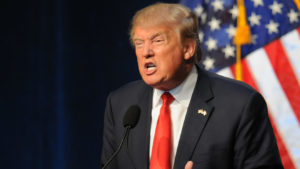 The Threat and the Reprieve
The Threat and the Reprieve
The withholding of federal grant money under Trump���s executive order against Sanctuary Cities was originally considerable. California stood to lose up to $132 m +, New York City, $60 m + and Chicago, $28 m+. And although most Sanctuary Cities have vehemently resisted this order, regardless of potential for revenue loss, the mayor of one large metro area, Miami-Dade, immediately caved and instructed his county jails to comply with federal immigration detention requests.
The good news for undocumented people in the United States, however, is that a federal judge overturned Trump���s order. At least for right now. In his explanation of that decision, he said, ���Upon finding that the administration may use it (the order) as ���a weapon��� against a city or county it deems a Sanctuary City without actually defining what this is.���
So in the very muddiness of the term, Sanctuary City, just might be the major defense that keeps those cities, counties and states, including their immigrant communities, safe from further legal efforts by the present federal administration.
Depending upon the information sources used, it is estimated there are between 165 and 608 non-federal government entities that could be called Sanctuary Cities with their own unique policies. And in that regard, it is this complexity that helps muddy the legal waters even more, possibly leading to the demise of yet another of Trump���s campaign promises.
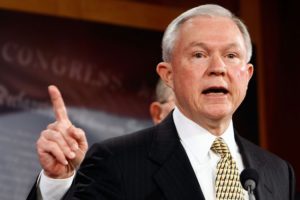
Attorney General Jeff Sessions
And along that very line of thinking, on Monday, May 21, 2017, U.S. Attorney General, Jeff Sessions, issued a clarification in a further eroding of the president���s executive order. In his memo, he:
Defined Sanctuary Cities as those places ���that willfully refuse to comply��� with federal law.
Stated that the withholding of federal dollars will now only apply to a small group of grants rather than the broader flow of funding from Washington to states, cities and counties.
But Sessions also indicated how grants in the future may be given out only to a priority list of locations that keep undocumented people in custody long enough for federal agents to be involved. It remains to be seen how such a dispersal will be viewed by the courts.
Sources for Further Information
Videos + articles
A Multimillion-dollar question: What���s a Sanctuary City (USA Today.com�� 56 sec.)
How Sanctuary Cities work (Vox.com 5:17)
What are Sanctuary Cities and can they be defunded? (CNN.com�� 1:23)
Articles
California judge blocks Trump Sanctuary City order (USA Today.com )
Justice Department Narrows Scope Of ‘Sanctuary Cities’ Executive Order (NPR)
Sanctuary Cities: Map (Center for Immigration Studies.com)
The White House���s claim that ���sanctuary��� cities are violating the law (Washingtonpost.com)
What is a Sanctuary City? And what happens now? (CBS News.com)
��
��
��
��
The post Sanctuary Cities: The Law & Trump appeared first on Welcome to the Worlds of Doug Dillon.
July 20, 2017
Trump’s Brain: Steve Bannon
Text reproduced with permission of��Text reproduced with permission of��Indivisible of Central Florida.
�� It turns out that Saturday Night Live���s caricature of Steve Bannon as the scary, manipulating, white nationalist power behind Donald Trump���s throne might not be far off the mark.
It turns out that Saturday Night Live���s caricature of Steve Bannon as the scary, manipulating, white nationalist power behind Donald Trump���s throne might not be far off the mark.
As the president���s 2016 campaign executive director, current senior counselor and chief strategist, we have seen the man wield immense influence, even thrusting him, for a time, into what was then called, a permanent seat on the ���principal���s committee��� of the National Security Council (NSC).
Make no mistake, Steve Bannon is an intelligent, savvy, well-educated and shrewd individual who seems to still have a tight grip on Donald Trump���s ear even despite his demotion on the NSC. Don���t let that disheveled appearance fool you. He helped put our current president in office and still serves as a key link between Trump and his far-right supporters.
But again, who is Steve Bannon? Let���s take a quick look:
 General Background
General Background
Born November 27, 1953 in Norfolk, VA and raised in Richmond.
Parents were ���blue-collar,��� Irish Catholics who were pro-union and pro-Jack Kennedy.
Earned a BA degree from Virginia Tech, an MA in National Security Studies at Georgetown University, and an MBA from Harvard Business School.
Served in the U.S. Navy for seven years as an officer with his final assignment as special assistant to the Chief of Naval Operations.
Worked at Goldman Sachs in mergers and acquisitions for three years.
Cofounded Bannon & Co., a financial business focusing on the entertainment industry.
Entered filmmaking in 1998 as the executive producer of the movie, Titus.
2004 saw Bannon leap headlong into the creation and production of conservative documentaries.
In 2012, he cofounded a nonprofit organization called The Government Accountability Institute dedicated to bringing to light bad deeds committed by well-known politicians.
Also in 2012, Bannon took control of the very conservative, anti-establishment website, Breitbart News Network. He then took that organization into the ���alt-right��� arena, allowing it to become a platform for white nationalists to vent their anger and frustration.
Starting in 2015, Bannon hosted radio talk shows through Breitbart, featuring ���alt-right��� guests. And as part of his overall lineup of people invited on his programs was Donald Trump ��� many times. And from there the two formed a solid alliance leading to the 2016 election.
Interesting, huh? The guy is no slacker. And so, with that as a given, let���s drill down a bit more in the man���s personal philosophy. The best way to do that is to look more closely at an important part of Steve Bannon���s filmmaking career. To start with, here is a list of those movies without initial comment:
 Conservative Political Documentaries
Conservative Political Documentaries
2004 In the Face of Evil: Reagan���s War in Word and Deed (Reagan lovefest)
2010 Generation Zero (Tracing the origins of the 2008 financial crisis ��� to hippies and Woodstock)
2010 Battle for America (Rise of the Tea Party)
2010 Fire from the Heartland (The rise of conservative women like Michele Bachmann)
2011 Undefeated (An adoration of Sarah Palin)
2012: District of Corruption, Occupy Unmasked, The Hope & The Change��(3 films with more of the same as above but focusing increasingly on crony capitalism, Obama and ���Professional Protesters���)
2016: Torchbearer (Featuring the life and philosophy of Phil Robertson of Duck Dynasty fame)
What Does All This Mean?
Now, when you study the content of these films you���ll find that Steve Bannon sees the world only in terms of black and white with no shades of gray.
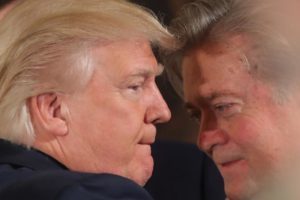 He decries the fall of Western Civilization, hates the established order, wants to bring everything down, calls himself a ���Leninist,��� criticizes the worship of science, detests hippies, denounces Planned Parenthood, resents Hollywood, lauds the ���forgotten man��� in America, abhors the media, bemoans the decline of Christianity and the rise of atheism, condemns the teaching of evolution and believes that a savior needs to take back the country from those ���others��� who don���t fit his narrow definition of human perfection. And that���s just for starters.
He decries the fall of Western Civilization, hates the established order, wants to bring everything down, calls himself a ���Leninist,��� criticizes the worship of science, detests hippies, denounces Planned Parenthood, resents Hollywood, lauds the ���forgotten man��� in America, abhors the media, bemoans the decline of Christianity and the rise of atheism, condemns the teaching of evolution and believes that a savior needs to take back the country from those ���others��� who don���t fit his narrow definition of human perfection. And that���s just for starters.
Some of the past saviors Bannon has put his trust in were Ronald Regan, Newt Gingrich, Lou Dobbs, Michele Bachmann and, of course, Sarah Palin. But after all those people didn���t quite make the grade, he met Donald Trump. It was a match made in heaven, or somewhere, and a new savior was born. The rest is current history.
So the next time you listen to Donald Trump, pay close attention to his words and tone. And what you will also hear is Steve Bannon in the background, guiding the rhetoric and pumping up the volume.
Sources for Further Information
Videos:
Clips from Breitbart Radio Show Reveal Trumps Relationship with Stephen Bannon (Washington Post – 3 min. 46 sec.)
Inside Steve Bannon���s Weaponized Political Documentaries (PBS Newshour – 9 min. 40 sec.)��
SNL Spoof of Bannon & Trump (CNN Entertainment ��� 1 min. 44 sec.) [Includes links to other SNL Trump spoofs]
Articles:
Bannon Removed from National Security Council (CNN)
Biography # 1 (Biography.com)
Biography # 2 (Britannica)
Steve Bannon and the Alt-Right: A Primer (CBS News)
Stephen Bannon & Donald Trump Alt-Right Breitbart News (Mother Jones News)
What I Learned Binge-Watching Steve Bannon���s Docs. (Politco.com)
The post Trump’s Brain: Steve Bannon appeared first on Welcome to the Worlds of Doug Dillon.
July 15, 2017
Impeaching a U.S. President? How It’s Done, Steps to Take
Reproduced with permission of Indivisible of Central Florida under a new title from a 5-part series on impeachment.
 With all the political turmoil sweeping through Washington DC, and the United States in general these days, the ���I��� word keeps popping up with increasing frequency. However, impeachment, the Constitution���s method for getting rid of a truly problematic president, isn���t something to attempt lightly or too quickly.
With all the political turmoil sweeping through Washington DC, and the United States in general these days, the ���I��� word keeps popping up with increasing frequency. However, impeachment, the Constitution���s method for getting rid of a truly problematic president, isn���t something to attempt lightly or too quickly.
The process is complicated, takes a long time, interrupts the flow of government and vastly increases the political fractures that already exist in the country. And besides, it has never resulted in an actual removal in the history of the republic.
That being said, presidential impeachments have been initiated three times in the past:
1.���������� Andrew Johnson in 1868.
2.���������� Richard Nixon in 1974.
3.���������� Bill Clinton in 1998
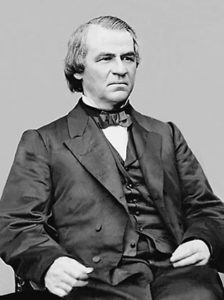
Andrew Johnson
Johnson and Clinton were impeached (charged) but not convicted and removed. Richard Nixon resigned before the process could be completed.
Impeachment of a president, in the restricted legal sense, is the bringing forth of charges for ���treason, bribery and other high crimes and misdemeanors.��� Most constitutional scholars agree that some sort of criminal offense(s) must be in question to even consider this provision, but only two actual crimes are listed: treason and bribery.
The wiggle room for interpretation comes in the term, ���and other high crimes and misdemeanors.��� Some even contend this intentional flexibility in the Constitution could mean that impeachment is anything Congress wants it to mean.
Impeachment charges are brought about in the House of Representatives, but the actual trial of the president is conducted in the Senate. All of that is supposed to be done in public. Each house of Congress makes up its own rules of procedure in these situations, but here are the basic steps as they exist at the writing of this article:
 In the House of Representatives
In the House of Representatives
1.���������� The Judiciary Committee considers the possibility of impeachment and if a majority agree, they bring it before the full House for approval to proceed. After debate in the house, and if the idea is approved by a majority, impeachment proceedings are initiated back in the Judiciary Committee.
2.���������� The Judiciary Committee then gathers evidence, interviews witnesses and holds hearings.
3.���������� The Judiciary Committee debates the merits of the case and decides whether or not to bring Articles of Impeachment to the full house.
4.���������� If Articles of Impeachment are drafted and voted for by a majority of the committee, they are then sent to the full House for a vote. If a majority of the House votes for one or more the articles, those charges are then referred to the Senate for an actual trial. The president is now considered impeached but not yet convicted.
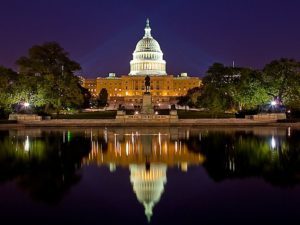 In the Senate
In the Senate
1.���������� In the end, the full Senate serves a both judge and jury when considering the Articles of Impeachment against a president. This is a full-blown trial process where the Senate gathers evidence, interviews witnesses and holds hearings.
2.���������� In the proceedings, the Chief Justice of the Supreme Court presides, but the Senate can overrule his decisions.
3.���������� After deliberating in private, the Senators vote publicly on the Articles of Impeachment. They can reject all the Articles or approve only certain ones. But approval to convict and remove a president from office takes a 2/3 majority, as opposed to the simple majority required in the House to bring the charges, a far more difficult goal to reach.
If a president is convicted in the Senate under even one Article of Impeachment
1.���������� He is removed from office and the vice president becomes president.
2.���������� At no time in the entire impeachment process can a president pardon himself.
3.���������� Once a president in impeached, convicted and removed from office, or resigns, that individual again becomes a private citizen who can then be subject to prosecution for violations of federal and/or state laws.
4.���������� The new president can pardon the convicted or resigned president from all such prosecution. Such was the case when Gerald Ford pardoned Richard Nixon after he voluntarily left office.
5.���������� The Senate can prevent a convicted/removed/resigned president from holding other federal offices.
If you are interested in the exact Constitutional wording for the entire impeachment process, you will find it at near end of this article. However, there is one other possible way to remove a sitting president. See below.
 The 25th Amendment
The 25th Amendment
In 1965, the 25th Amendment to the Constitution was passed by Congress and ratified by the states in 1967. It was a clarification of presidential succession after the assassination of John Kennedy, but it also added wording about what to do if a president becomes disabled in some way and can���t fully function. This was meant to mean a physical condition but some interpret the term ���disability��� as also covering a president���s mental/emotional state.
In a time when a sizeable number of people in the United States question the current president���s mental balance and emotional ability to properly perform his duties, the 25th Amendment is increasing being cited as a method of removal.
And while that possibility exists, a great many experts are less than certain such a process would actually work or even should work. Whereas physical disability is a reasonably clear concept on which to build a case for removal, mental and emotion factors are open to vastly divergent ways of interpretation.
In addition, this method of removal involves the vice president and a majority of the president���s Cabinet declaring that individual as unfit. Then both houses of Congress would have to approve this outlook by a 2/3 majority, a radical and somewhat questionable shift from the impeachment process as provided for in the body of the Constitution. As in impeachment, the vice president would then become president.
To find the 25th Amendment in full, go to the end of this article. Located in Section 4, and shown in italics, is the removal portion in question.
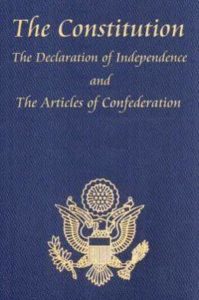 Impeachment as written into the Constitution
Impeachment as written into the Constitution
Article 2, Section 4
The President, Vice President and all civil Officers of the United States, shall be removed from Office on Impeachment for, and Conviction of, Treason, Bribery, or other high Crimes and Misdemeanors.
Article I Section 2, Clause 5
The House of Representatives shall chuse their Speaker and other Officers; and shall have the sole Power of Impeachment.
Article 1, Section 3, Clause 6
The Senate shall have the sole Power to try all Impeachments. When sitting for that Purpose, they shall be on Oath or Affirmation. When the President of the United States is tried, the Chief Justice shall preside: And no Person shall be convicted without the Concurrence of two thirds of the Members present.
Article 1, Section 3, Clause 7
Judgment in Cases of Impeachment shall not extend further than to removal from Office, and disqualification to hold and enjoy any Office of honor, Trust or Profit under the United States: but the Party convicted shall nevertheless be liable and subject to Indictment, Trial, Judgment and Punishment, according to Law.
 Amendment 25: The full wording
Amendment 25: The full wording
Section 1. In case of the removal of the President from office or of his death or resignation, the Vice President shall become President.
Section 2. Whenever there is a vacancy in the office of the Vice President, the President shall nominate a Vice President who shall take office upon confirmation by a majority vote of both Houses of Congress.
Section 3. Whenever the President transmits to the President pro tempore of the Senate and the Speaker of the House of Representatives his written declaration that he is unable to discharge the powers and duties of his office, and until he transmits to them a written declaration to the contrary, such powers and duties shall be discharged by the Vice President as Acting President.
Section 4. Whenever the Vice President and a majority of either the principal officers of the executive departments or of such other body as Congress may by law provide, transmit to the President pro tempore of the Senate and the Speaker of the House of Representatives their written declaration that the President is unable to discharge the powers and duties of his office, the Vice President shall immediately assume the powers and duties of the office as Acting President.
Thereafter, when the President transmits to the President pro tempore of the Senate and the Speaker of the House of Representatives his written declaration that no inability exists, he shall resume the powers and duties of his office unless the Vice President and a majority of either the principal officers of the executive department or of such other body as Congress may by law provide, transmit within four days to the President pro tempore of the Senate and the Speaker of the House of Representatives their written declaration that the President is unable to discharge the powers and duties of his office.
Thereupon Congress shall decide the issue, assembling within forty-eight hours for that purpose if not in session.
If the Congress, within twenty-one days after receipt of the latter written declaration, or, if Congress is not in session, within twenty-one days after Congress is required to assemble, determines by two-thirds vote of both Houses that the President is unable to discharge the powers and duties of his office, the Vice President shall continue to discharge the same as Acting President; otherwise, the President shall resume the powers and duties of his office.
For further information
Videos
How to Impeach a President (Vox 6:50)
Impeachment: Donald Trump’s worst nightmare? (CNN.com 1:46)
Impeachment guide: It would be nasty and complicated and it isn’t happening anytime soon (CNN.com 1:45)
Articles
Amendment 25: Presidential Vacancy, Disability and Inability (Findlaw.com)
An Overview of the impeachment process (U.S. Senate.gov.)
Background on impeachment (Cornell Legal Information Institute.edu)
Enforcing the Constitution in the Trump Era (DougDillon.com)
Impeachment (Infoplease.com)
Presidential disability and succession: Amendment 25�� (National Constitution Center.org)
Presidential Impeachment: Legal Standard and Procedure (Findlaw.com)
Research Guide on Impeachment (Library of Congress)
The Case for Impeachment (HarperCollins Publishers)
The post Impeaching a U.S. President? How It’s Done, Steps to Take appeared first on Welcome to the Worlds of Doug Dillon.
April 29, 2017
Enforcing the Constitution in the Trump Era
Reprinted with permission from Indivisible Central Florida under a new title.
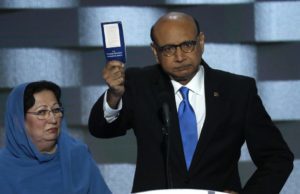 When Mr. Khizi Khan eloquently addressed the Democratic Convention in July of 2016, he electrified people not only across the United States but throughout the world as well.
When Mr. Khizi Khan eloquently addressed the Democratic Convention in July of 2016, he electrified people not only across the United States but throughout the world as well.
With his wife, Ghazala, standing by his side, and speaking as a Gold Star Parent, he strongly challenged Donald Trump’s knowledge of the Constitution. (See video clip at the end of this article)
Muslim immigrants and U.S. citizens who lost their son, Army Captain Humayan Khan, in the Iraq War, Mr. and Mrs. Khan spoke truth to power, not just in words, but by their very presence. And in so doing, they reminded all Americans how the Constitution is the bedrock upon which our country is built and that it is not the sole possession of political conservatives.
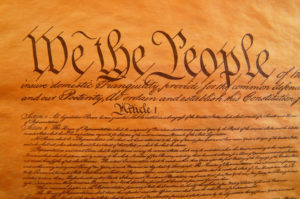
Preamble to the Constitution
Since Mr. Khan’s speech, unfortunately, Donald Trump was elected president and much of the country watched in horror as he immediately tried to exceed his presidential authority by banning Muslims in certain nations from entering the United States.
Sadly, those two events were just the beginning of an avalanche of poisonous words and actions erupting out of Washington, DC that threaten the separation of powers in this country and the very freedoms we have for so long taken for granted.
 And in that glaring light of reality, it is crucial for every thinking American to become as familiar with the U.S. Constitution as is Mr. Khan. Too many of us in the United States haven’t had a direct encounter with that document since high school days or even earlier.
And in that glaring light of reality, it is crucial for every thinking American to become as familiar with the U.S. Constitution as is Mr. Khan. Too many of us in the United States haven’t had a direct encounter with that document since high school days or even earlier.
Now though, is the time to brush-up on what we think we know. This is especially true for those who wish to fully challenge Donald Trump and Company and more effectively empower elected officials who oppose the insanity that has staked a claim on our country.
To start you on your journey, we have provided links to resources below that should be of help. In this listing, you will find descriptive videos, incredibly helpful interactive websites, ways to get your own copy of the Constitution and much more. Go for it and please pass this information on to others.
Sources for Further Information
Videos:
An Introduction to the U.S. Constitution (The AudioConstitution – 3 min.)
Mr. Kahn addresses the 2016 Democratic National Convention (CNN 6 min.)
Quick History of the Constitution (History Channel – 4 min.)
Websites and Online Articles:
A PDF copy of the full Constitution for your computer files and printing: (The Constitution Center)
Buy a pocket copy of the Constitution: (ACLU)
Make Your Own Constitution Booklet (Constitutionbooklet.com)
Mr. Khan’s Speech as Reported on NPR
The Online Interactive Constitution: (The Constitution Center)
The Constitution without the Bill of Rights – easy items linked access: (National Archives)
The Bill of Rights – easy items linked access: (National Archives)
April 27, 2017
Beyond the Universe
 A new paranormal book in English by my French author friend, Patrick Delsaut. Check it out!
A new paranormal book in English by my French author friend, Patrick Delsaut. Check it out!
Beyond the Universe is a provocative look at what awaits humanity, and animals as well, after death. Building on the testimonies of those who have actually visited the “other side”, Delsaut takes readers on a fascinating journey into different dimensions, vibratory planes, parallel worlds and universes where souls of the deceased still exist.
Using a wealth of detail, including over 400 color images, this interesting author wrote the book in order to guide those who wander in darkness in search of truth. And to do this in his writing, he shares not only his extensive research but his personal experiences as well.
Delsaut’s own connections to paranormal realms are numerous and he has shared many of them with me as a guest blogger on my website.

Patrck Delsaut
Now, to give you an even deeper sense of what his book covers, here are his chapter titles:
1. All Living Things Have a Soul
2. The “Gates” of Heaven
3. The Physical Plane from Cosmos to Life
4. At the Heart of Life
5. Beyond Death
6. The Etheric Plane
7. The Astral Plane
8. Beyond the Astral lane
9. Logoi, Devas, Manus and Avatars
10. God, the Source of Life and Universes
 Beyond the Universe is available in the United States through Lulu Publishing as a paperback. Click here to connect with Lulu. Lulu offers the book in multiple versions to fit every budget: the full version, split into two versions, one on color and one in black and white, PDF, and ebooks.
Beyond the Universe is available in the United States through Lulu Publishing as a paperback. Click here to connect with Lulu. Lulu offers the book in multiple versions to fit every budget: the full version, split into two versions, one on color and one in black and white, PDF, and ebooks.
To visit Patrick on his website and see his other books, click here.



